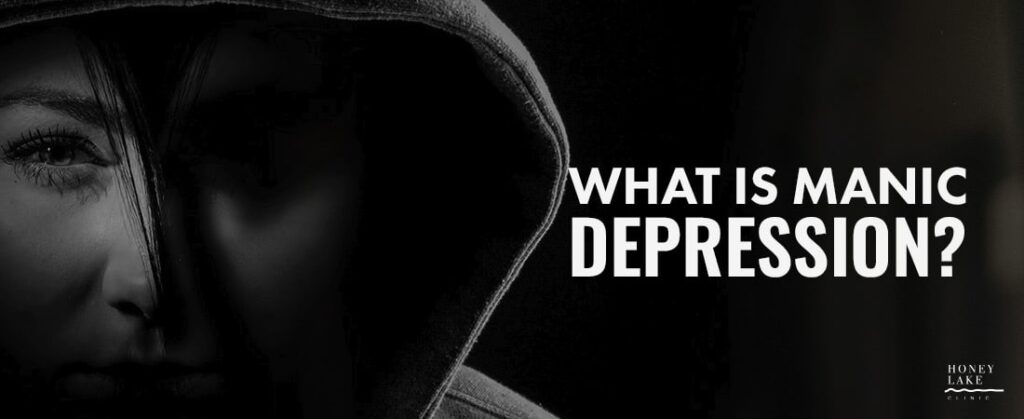What is Manic Depression?
Bipolar Disorder is a serious mental health condition formerly known as manic-depression. You can see how the two terms are similar—manic-depression describes mood swings between two opposing poles, manic or high-energy states and depressed states, or in other words, a bipolar condition.
While we all experience emotional ups and downs from time to time, manic-depression or bipolar disorder is characterized by abnormal highs and lows. These mood swings are extreme and begin to interfere with everyday living. Without proper treatment, bipolar disorder can become very dangerous.
Bipolar Disorder can be a confusing and discouraging challenge for the individual facing it and the people who love them. If you think you or someone you love may be suffering with a bipolar disorder, we want to help.
What does bipolar disorder look like? How is it diagnosed?
There isn’t a test for diagnosing Bipolar Disorder. Rather, bipolar is diagnosed by having a qualified and experienced medical professional analyzing three areas—
- History – a client’s background
- Symptoms – what they’re experiencing
- Interview – an interview to put all the pieces together
Typically, mental health professionals are looking for manic behavior as a key in identifying bipolar disorder. Here are seven manic symptoms to look for:
- Inflated self-esteem or grandiosity
- Decreased sleep; rested after only a few hours of sleep
- More talkative or feeling pressure to keep talking
- Racing thoughts and ideas
- Distractibility; attention easily drawn to unimportant things
- Increased goal-directed activity or psycho-motor agitation
- Excessive involvement in pleasure activities that have high potential for painful consequences (unrestrained shopping, buying, sexual indiscretion, business investment, etc.)
These symptoms often combine to significantly impact a person’s daily living. It might look like this:
- Engaging in multiple projects with little planning or thought at the outset, finishing none of them.
- Working on these projects at all hours, with little regard for rest or sleep, and no regard for other responsibilities or obligations.
- Waking several hours earlier than usual, feeling full of energy. Perhaps going for days without sleep and not feel tired.
- Pressured speech without regard for others wanting to contribute to conversation. Talking over people, perhaps becoming theatric and/or very animated in speech.
- If the person’s mood is irritable, speech may be characterized by complaints, hostile comments, or angry tirades.
- An inability to focus and screen out irrelevant external stimulus or differentiate between what is relevant and non-relevant to matters at hand.
It is worth repeating: Bipolar disorder is a serious mental health concern. Left untreated, it can be dangerous. Manic episodes can become so extreme as to include hallucinations, psychosis, grandiose delusions or paranoid rage. Depressed episodes can degenerate into delusions of guilt, worthlessness, and hopelessness. Some people with bipolar disorder become suicidal.
If you recognize some of the symptoms in your life or in someone you love, we understand, and we can help. To speak confidentially with a certified counselor, please call us at (888) 837-6577.
At Honey Lake Clinic, our experienced staff, licensed therapists, psychologists, and psychiatric specialists understand that effective treatment for bipolar disorder requires a multifaceted, faith-based approach, involving healing of the mind, body, and spirit.
Medication, psychological awareness and skills, and spiritual truths and principles are all integral parts of a life-transformation process.
At Honey Lake Clinic, we appropriately prescribe and carefully monitor psychiatric medications to help control psychiatric symptoms. Medications can buy time so talk therapy and spiritual growth can begin to produce the decision-making skills which, when nurtured into positive patterns, bear the fruit of long-term healing.




